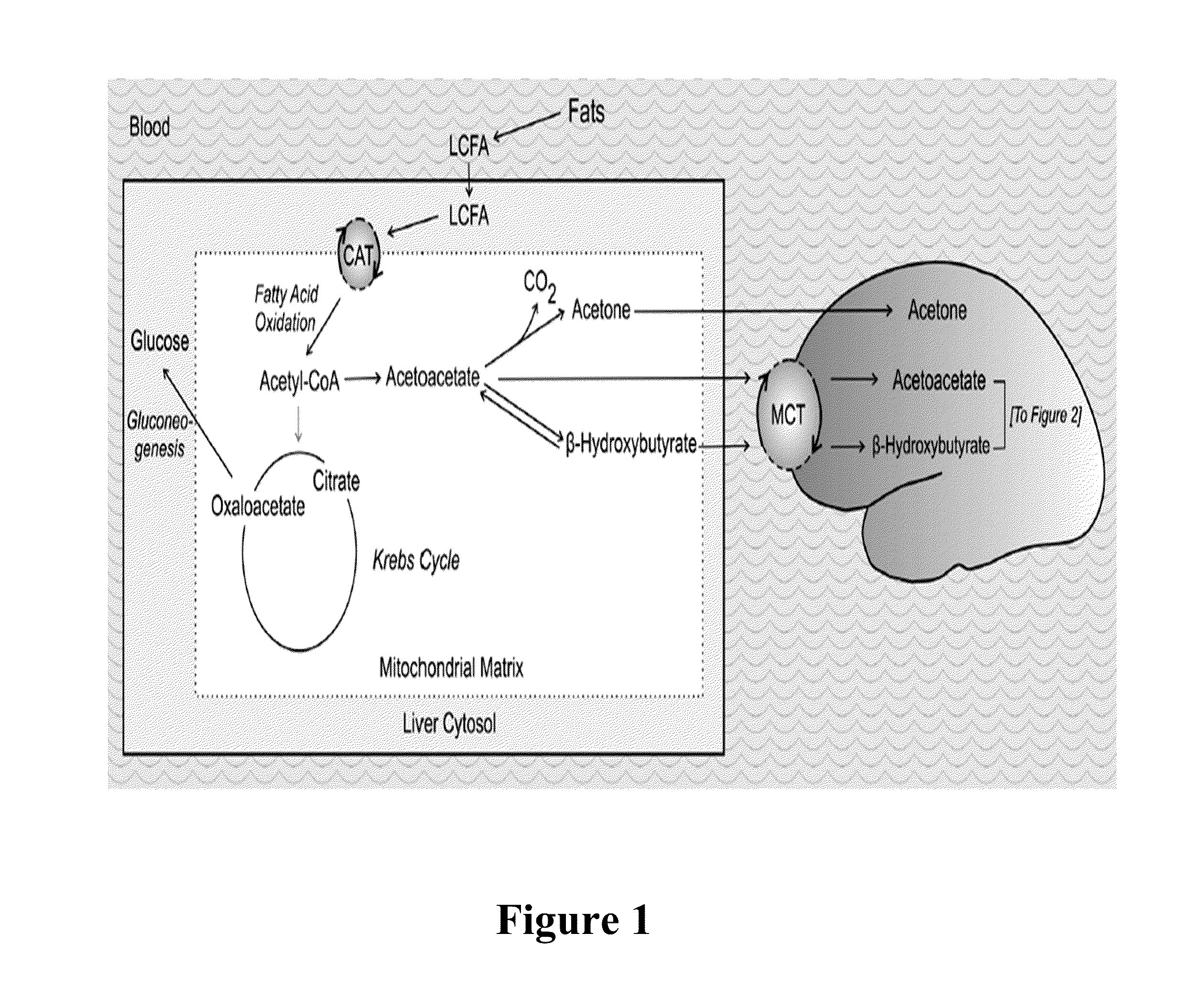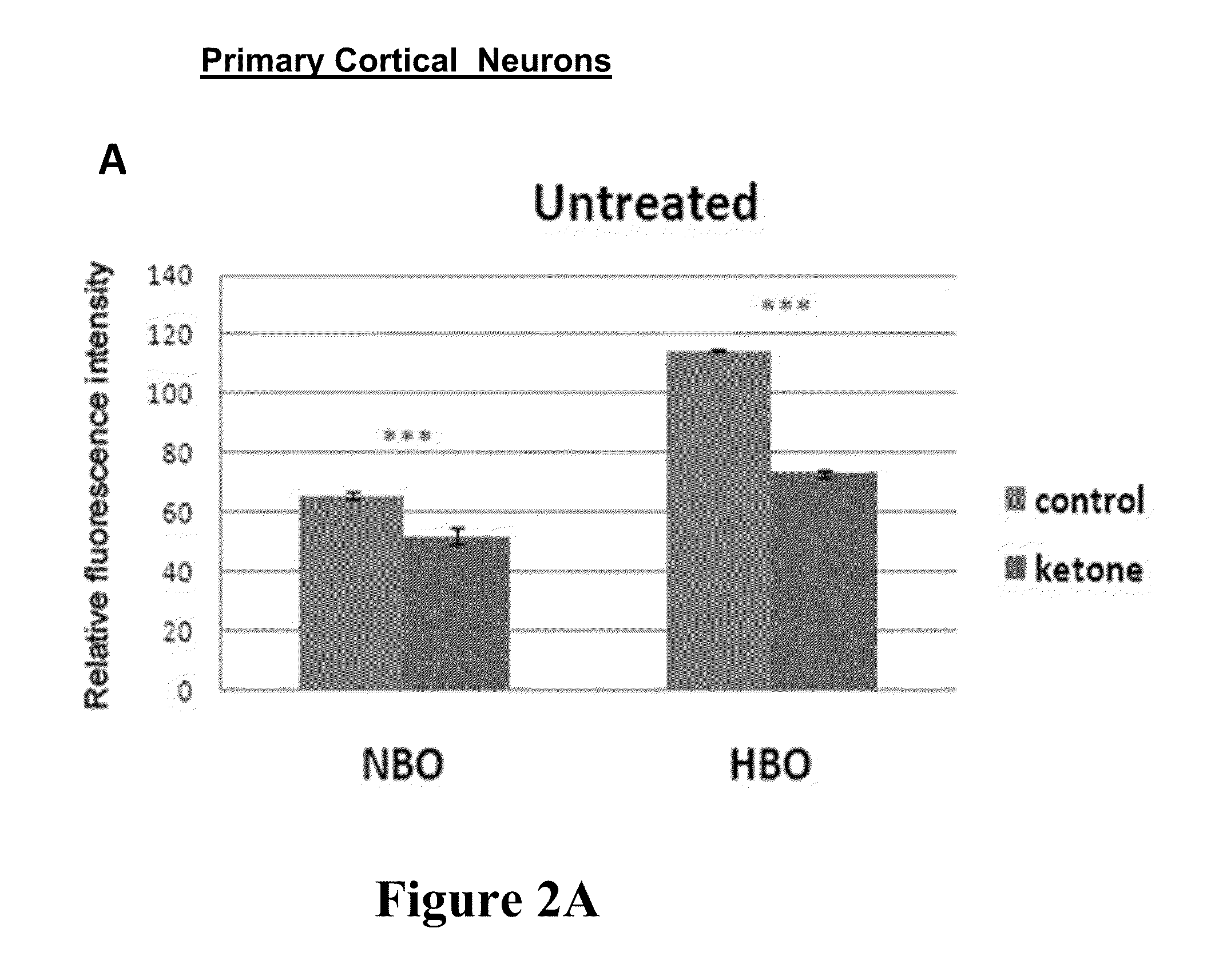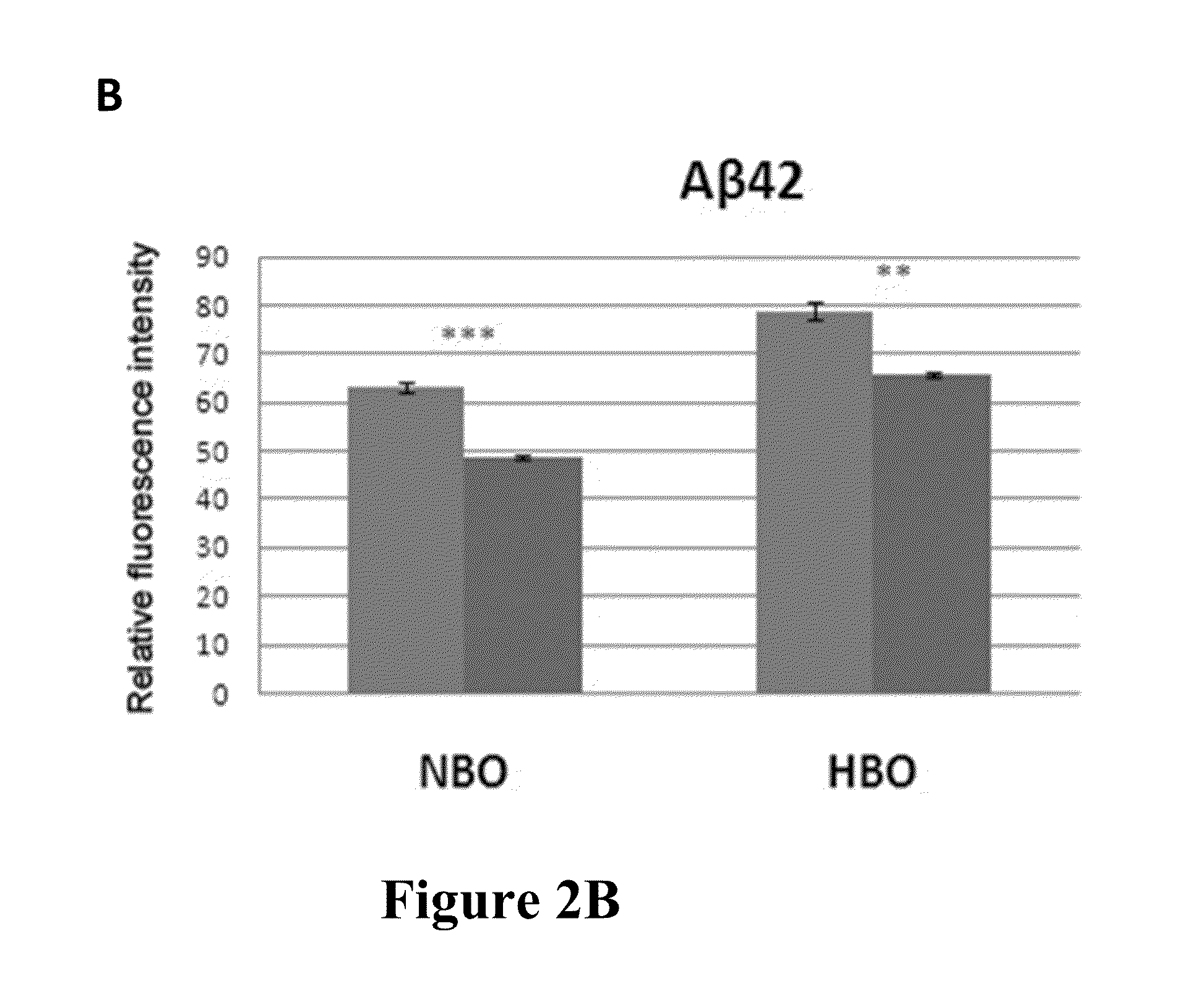Use of ketone esters for prevention of CNS oxygen toxicity
a technology of cnsot and ketone esters, which is applied in the direction of biocide, nervous disorder, drug composition, etc., can solve the problems of oxygen toxicity (cnsot, no effective mitigation strategy), and achieve the effects of reducing the latency of seizures, and reducing the risk of cnso
- Summary
- Abstract
- Description
- Claims
- Application Information
AI Technical Summary
Benefits of technology
Problems solved by technology
Method used
Image
Examples
example 1
Neuroprotective Effect of Supplemental Ketones
[0103]Ketogenic diets (KDs), calorie restriction (CR) and ketogenic precursors (e.g. ketone esters) increase ketone body formation. Ketone bodies represent alternative energy substrates for brain metabolism with anticonvulsant and neuroprotective properties. Acetone readily crosses the blood brain barrier (BBB), whereas acetoacetate and B-hydroxybutyrate are transported via the monocarboxylic acid transporter (MCT) as illustrated in FIG. 1.
[0104]Neuroprotective Effect of Supplemental Ketones on Neuronal Production of Superoxide and Viability of U87MG Cancer Cells
[0105]Effect of ketones on superoxide production in neurons treated with Aβ42 and HBO and cell viability of U87MG cells is shown in FIG. 2A-C. FIG. 2A shows superoxide anion production was significantly lower in ketone treated cells under normobaric pressure (NBO) and hyperbaric pressure (HBO). FIG. 2B shows that in the case of Aβ42 treated cells a significant reduction of ROS pr...
example 2
Anticonvulsant Effect of Supplemental Ketones in Rats Exposed to Hyperbaric Oxygen (5 ATA O2)
[0110]The details of this example are explained in the Materials and Methods section above. Briefly, the effects of ketone esters (KEs) in preventing CNS-OT in rats were assessed before, during and after HBO2 exposure by measuring various parameters. Briefly, Sprague-Dawley rats (300-450 grams; 3 to 6 month old) were anesthetized (3-5% isoflurane) and implanted with a DSI (Data Sciences International) 4-ET radio-transmitters for recording diaphragmatic electromyogram (dEMG), electrocardiogram (ECG), electroencephalogram (EEG), core body temperature, and physical activity. Following from surgery (7 days), a single rat was placed in a separate plexiglass chamber inside a hyperbaric chamber (Reimers System, Inc—7.8 ATA MWP). The rat chamber was ventilated with pure O2 while the hyperbaric chamber, containing the radio-receiver (DSI), was pressurized in parallel with air to 5 atmospheres absolut...
example 3
KE Induces Rapid and Sustained Elevation of BHB, AcAc and Acetone
[0119]Blood ketones and glucose levels were examined following administration of water, KE and BD. FIG. 13 shows blood plasma levels of BHB in rats (n=6 rats / group) semi-fasted (18 hrs) and gavaged with 3 mL (˜10 g / kg) of water (control), R,S-1,3-Butanediol acetoacetate diester (AcAc Diester) or R,S-1,3-Butanediol. Elevated BHB levels are demonstrated as compared to the control after administration of either ketogenic compound.
[0120]FIG. 14 shows blood plasma levels of AcAc in rats (n=6 rats / group) semi-fasted (18 hrs) and gavaged with 3 mL (˜10 g / kg) of water (control), BD-AcAc2 (AKE) or R,S-1,3-butanediol (BD). The results of FIG. 14 illustrate that AcAc level was increased significantly more by KE as compared to water or BD.
[0121]FIG. 15 illustrates that there is no change in blood glucose in all groups in response to BD-AcAc2, which represents a calorically dense (6 kcal / gram) substance that does not elevate blood ...
PUM
| Property | Measurement | Unit |
|---|---|---|
| volume | aaaaa | aaaaa |
| oxidative stress | aaaaa | aaaaa |
| metabolic energy | aaaaa | aaaaa |
Abstract
Description
Claims
Application Information
 Login to View More
Login to View More - R&D
- Intellectual Property
- Life Sciences
- Materials
- Tech Scout
- Unparalleled Data Quality
- Higher Quality Content
- 60% Fewer Hallucinations
Browse by: Latest US Patents, China's latest patents, Technical Efficacy Thesaurus, Application Domain, Technology Topic, Popular Technical Reports.
© 2025 PatSnap. All rights reserved.Legal|Privacy policy|Modern Slavery Act Transparency Statement|Sitemap|About US| Contact US: help@patsnap.com



